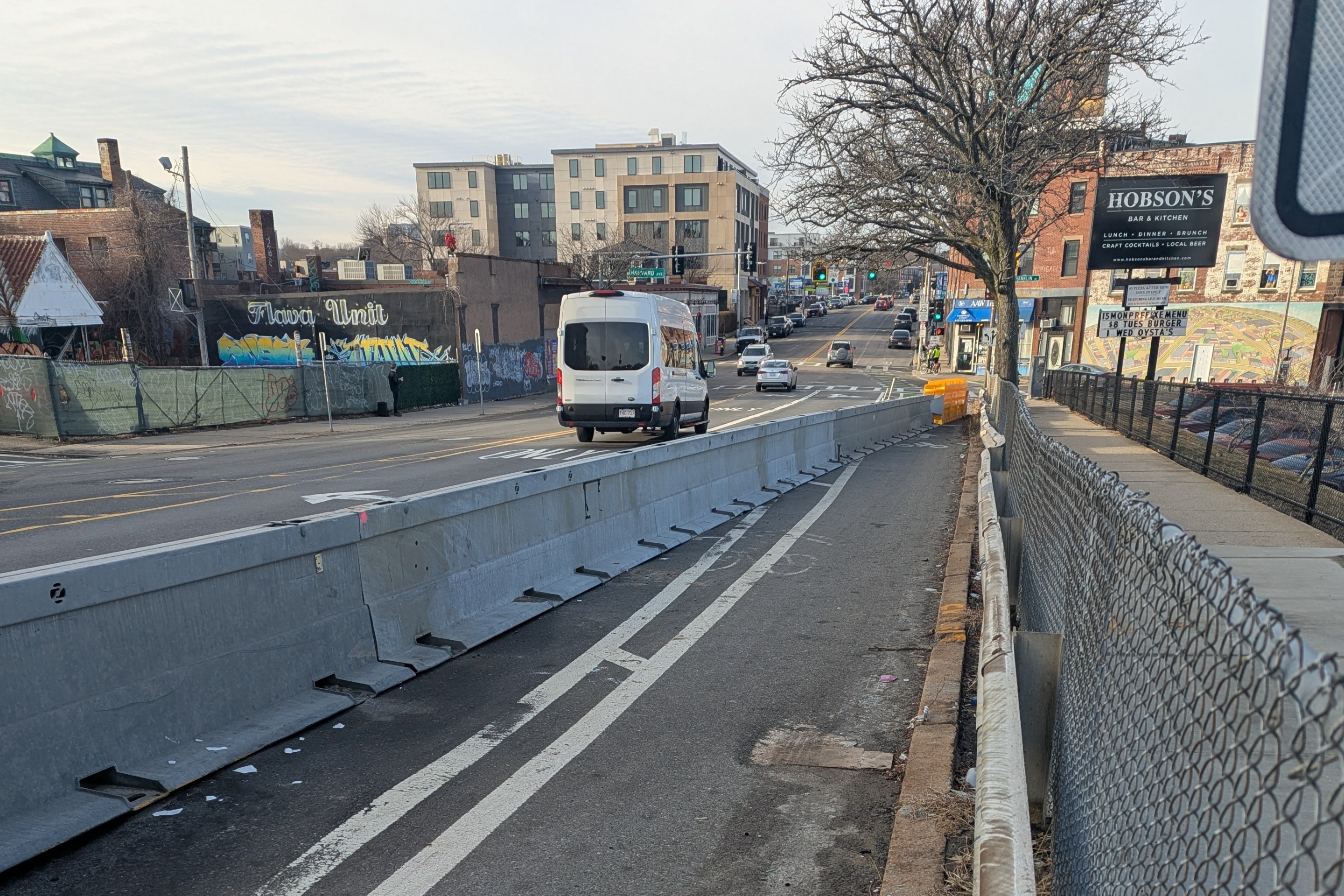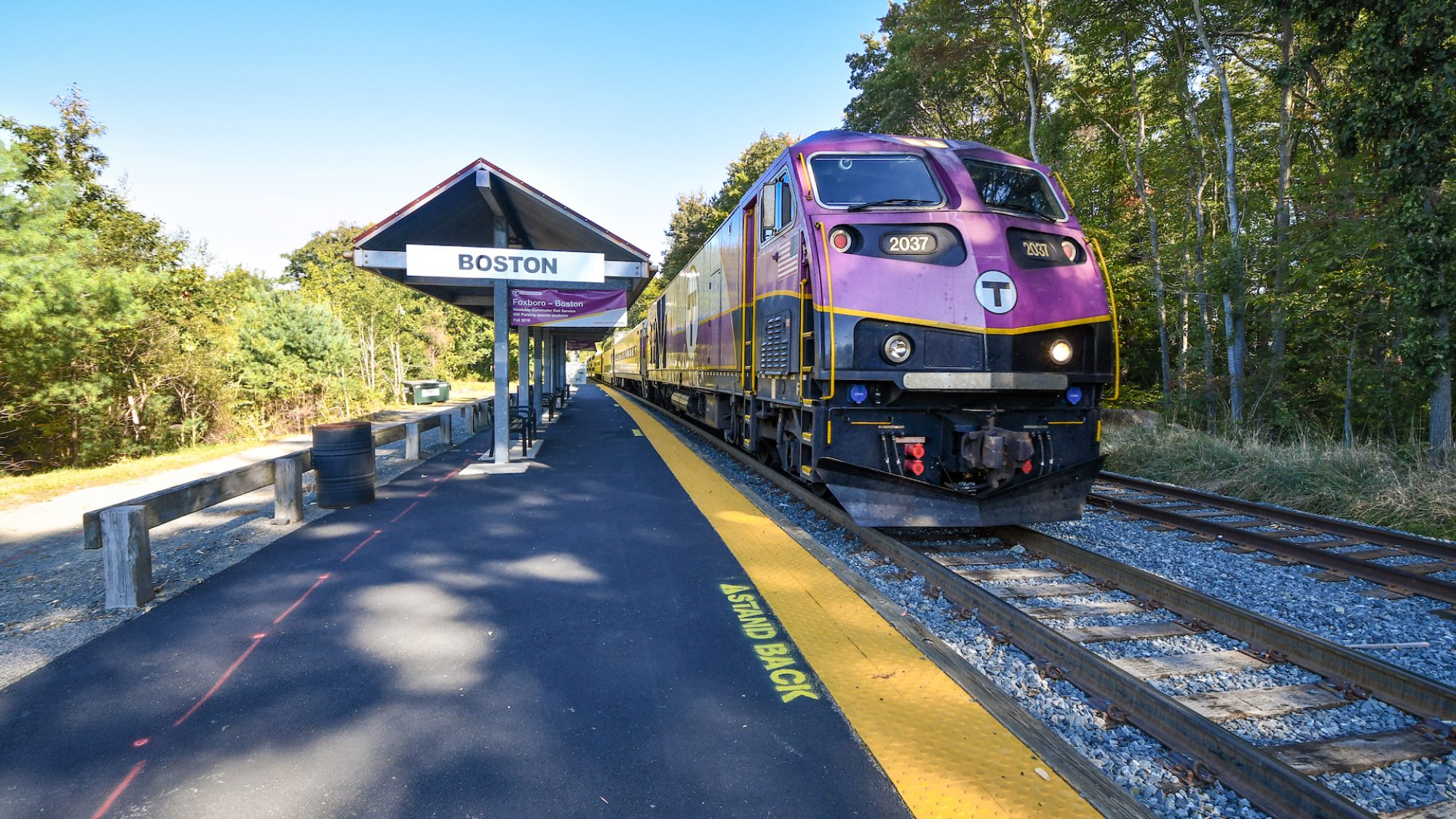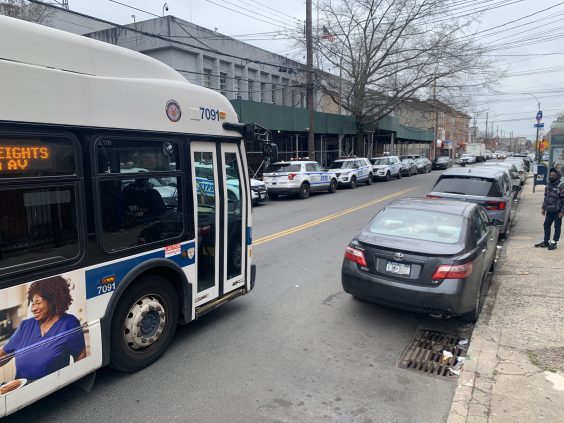This story was updated at 11 a.m. Friday, November 13 to include information about the Senate budget proposal.
The Massachusetts General Court continues to debate its 2021 budget bill today, but it looks increasingly unlikely that lawmakers will help the MBTA avoid severe budget cuts starting next spring.
The amended House budget bill for fiscal year 2021 essentially flat-funds the T’s budget for the 2021 fiscal year, with $1.1 billion for the T from dedicated sales tax revenue, plus $127 million in operating assistance – the same amounts that were appropriated in the adopted 2020 budget, which was prepared before the pandemic.
The Senate Ways and Means Committee, whose draft bill was released yesterday, makes similar recommendations.
Because the T's fare revenue has plummeted over the past year, funding the T at pre-pandemic levels will leave the agency with a huge budget deficit – a deficit that would need to be filled, in part, with drastic budget and service cuts.
Legislators in the House had filed over 700 amendments to the proposed budget bill when the chamber began its deliberations on Tuesday. Among those amendments were several that would have increased funding to the MTBA and the state's regional transit authorities.
The "Transit Is Essential" amendment, with 23 cosponsors, would have increased the state's operating assistance from $127 million to $435 million – enough to nearly eliminate the T's budget shortfall for the coming year.
However, in the early hours of Wednesday morning, legislators had swept up many of the bill's proposed amendments into a "consolidated amendment," which eliminated the language for increased state operating assistance.
Rep. Joan Meschino of Hull, who offered and ultimately withdrew two amendments to set aside dedicated funding for ferries and buses, expressed a hope during Tuesday's debate that the chamber could find some alternative way "to stave off deep, drastic cuts" to the MBTA.
"These cuts are talked about as if they are temporary, but we all understand that you can't turn them off and on again like a lightbulb. Once these assets are mothballed, they will be gone for good," warned Meschino.
Related:
Advocates Launch #TransitIsEssential Campaign As T Floats Severe Service Cuts
The Senate is expected to begin debate on its own bill next week. As of Friday morning, proposed amendments to the Senate's bill have not yet been filed.
However, Senator Will Brownsberger, a pragmatic transit supporter who represents parts of Boston and the towns of Belmont and Watertown, suggested that the T's current ridership levels will likely make it a lower priority for state funding among many other competing demands.
"As someone very concerned about climate change, I share the concern that service cuts will lead to more people choosing cars over transit... Improving transit has been a central effort of my life, so seeing it move in the wrong direction is very hard," Brownsberger wrote in an emailed statement to StreetsblogMASS.
"At the same time, I don't think it is possible or advisable to maintain current service levels when ridership is down by 75%... I think our effort should be to assure that the MBTA works to protect necessary service for its most vulnerable riders who have no other options, to control crowding to allow social distancing, and to assure that they are positioning themselves to come back strong."
The Senate Ways and Means committee bill does include one piece of positive news for transit riders: it proposes a small increase the state's operating support for regional transit authorities – public bus systems that operate outside of the MBTA service area – by $3.5 million.






